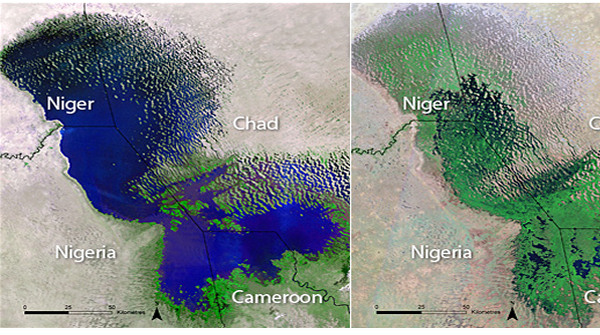
One billion dollars have been allocated by the World Bank to help the people in the nations affected by the Lake Chad insurgency build their resilience and enhance their standard of living.
This was announced by Mr. Rasit Pertesv, the bank’s Chad Country Manager, on Thursday at the Fourth Lake Chad Governor’s Forum conference in N’Djamena, Chad.
According to The News Agency of Nigeria, the forum takes place in the midst of evolving patterns of conflict and new problems that have caused widespread emigration, harm to the social fabric, interruptions in public services, and weakened institutional capacities throughout the affected countries, including Chad, Cameroon, Niger, and Nigeria.
He said that the money distributed to the crisis-affected nations had boosted economic growth, produced jobs, and improved the lives of those who had taken the brunt of the crises.
According to the country manager, the International Development Association’s zero-interest financing supported two crucial regional development targets, including the restoration of livelihoods to lessen the vulnerability of those residing in Lake Chad.
In order to provide better opportunity and integration in the sectors of agriculture, energy, transport, and regional trades, he claimed that it would go a long way toward boosting cross-border economic activity.
In order to restore and improve security in Lake Chad, Pertev praised the regional stability program and urged more work toward a long-term rehabilitation in the afflicted areas.
Amb. Mamman Nuhu, executive secretary of the Lake Chad Basin Commission, who also spoke, emphasized that the region’s inhabitants were vulnerable to the ideology of the extremist group because of the region’s pervasive poverty, unemployment, and illiteracy.
According to Nuhu, the majority of the region’s young and energetic who were formerly dependent on farming and livestock husbandry, had their livelihoods disrupted, leaving them open to Boko Haram’s propaganda.
“Since the Regional plan for Stabilization, Recovery, and Resilience (RS-SRR) was created in 2018, the plan has served as a regional architecture for addressing the challenging security, humanitarian, and development concerns the area is currently facing.
In order to achieve long-term stabilization, recovery, and resilience, it emphasizes the necessity for a comprehensive, multi-sectoral, and integrated set of sub-national, national, and cross-border activities.
The Lake Chad Basin Governors’ Forum is one of the efforts and programs that have emerged as a result to promote regional collaboration, address humanitarian needs, and promote peace and development in the area.
The Lake Chad Basin Governors Forum, according to Amb. Adeoye Bankole, Commissioner for Political Affairs, Peace and Security, African Union Commission, is a crucial venue for advancing long-term regional peace and security.
In order to assist the forum’s efforts to solidify the peace in the area and improve prospects for residents of the Lake Chad Basin, he continued, “The African Union encourages further collaboration among member states and international partners.”
Director of the UNDP Sub-Regional Hub for West and Central Africa, Njoya Tikum. “UNDP will keep assisting the LCBC in building a more promising future for the Lake Chad Basin—a future where safety has been restored, communities have been rebuilt, and opportunities abound.
The Lake Chad Basin Governors’ Forum gave birth to the Regional Stabilization Facility, which played a crucial role in putting the RS-SRR into action. Nearly 500,000 internally displaced people have been able to return to their areas and considerably improve their quality of life thanks to the cooperative efforts we have been able to co-create, the official said.
The Lake Chad Governors Forum, with the subject “New Opportunities for Peace in a Shifting Security Context,” seeks to better comprehend new security developments in the area and their implications for ongoing attempts to reestablish state authority, according to NAN.
It also aims to consider the RS-SRR’s future, which is currently in its final year of implementation, as well as strategies to strengthen collaborations and scale up efforts to alleviate the issue of those who have been forcibly displaced, including refugees and internally displaced people.
(NAN)
